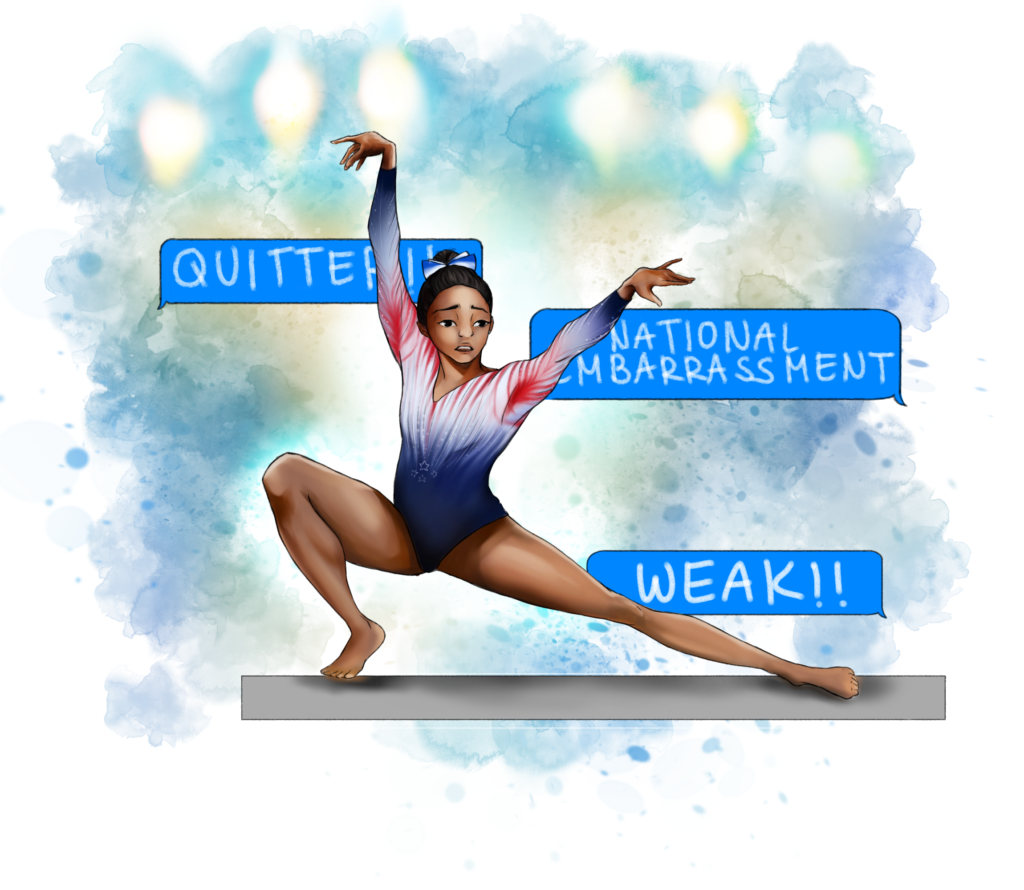By Ella Chan
Staff Writer

“So long as we have Simone Biles, the US will win gold,” my mum said as we watched the 2021 Tokyo Olympic gymnastics trials. I sat quietly, thinking that Mum’s statement put a lot of pressure on a single person.
When Biles withdrew from multiple Olympic events for her mental health, it was clear she was weighed down by that pressure. Gymnastics is a sport that requires complete concentration, and one fleeting moment of distraction may result in a broken neck. Therefore, her decision to withdraw was the right one for her health and safety.
But then, why were so many of us surprised that she withdrew? Clearly, the quality of an athlete’s mentality is what allows them to compete in stressful situations. Yet, there are no mental health support systems in place for them.
Without support, the pressure placed upon athletes often causes them to overtrain, which results in a large portion of athletes experiencing mental health issues. According to the British Journal of Sports Medicine, approximately 34% of elite athletes showed signs of depression and anxiety.
For student-athletes, the effects of overtraining are even harsher. Since they have to balance their personal, school and athletic lives, student-athletes tend to sleep only a few hours every day. In fact, a study done by the NCAA shows that approximately one-third of collegiate student-athletes sleep less than seven hours a day. This sleep deprivation causes a decrease in performance quality and worsens pre-existing mental health issues.
Furthermore, as high school athletics take on more and more similarities to college-level athletics, high schoolers find themselves facing the same problems. Yet, studies by the NCAA show that, when confronted with these difficulties, student-athletes are actually less likely to ask for help than their non-athlete counterparts.
Thus, trainers need to be educated in mental health concerns in order to guide athletes to the support they may need. In addition, counselors should check in with student-athletes regularly to ensure training does not become excessive and that their mental health is not deteriorating.
“We’re not just athletes or entertainment. We’re human too,” Biles said as critics called her a “national embarrassment” for withdrawing from the Olympics. While there are people who believe athletes should not walk away from competitions, their safety and health comes first. Athletes are not obligated to compete when their mental state makes it unsafe, as competing can result in severe injury and inhibit an athlete’s ability to even enjoy their sport.
Simone Biles’ decision to withdraw for her safety was a clear example of the importance of mental health and was a door to openly speak of a subject often considered taboo. And as more concerns appear with these conversations, systemic changes must be made.
